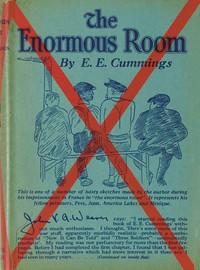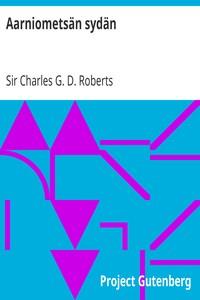Read this ebook for free! No credit card needed, absolutely nothing to pay.
Words: 56951 in 9 pages
This is an ebook sharing website. You can read the uploaded ebooks for free here. No credit cards needed, nothing to pay. If you want to own a digital copy of the ebook, or want to read offline with your favorite ebook-reader, then you can choose to buy and download the ebook.
CHARACTER. THE HUMAN TRINITY. THOUGHT. IMAGINATION. AFFECTION. LIFE. CONVERSATION. MANNERS. COMPANIONSHIP. CHARACTER.
"We have been taught, consciously or unconsciously, intentionally or unintentionally, to seek rather what virtue gives than what virtue is; the reward rather than the service, the felicity rather than the life, the dowry, let me say, rather than the bride."--T.T. STONE.
The weakness and helplessness of humanity, in relation to the fortunes of this life, have been a favorite theme with philosophers and teachers ever since the world began; and every term expressive of all that is uncertain, insubstantial, and unstable has been exhausted in describing the feebleness of man's power to retain in possession the good things of this life, or even life itself. However firmly the hand of man may seem to grasp power, reputation, or wealth; however numerous may be the band of children or friends that surrounds him, he has no certainty that he may not die friendless and a pauper. In fact, the most brilliant success in life seems sometimes to be permitted only that it may make the darkness of succeeding reverses the more profound.
Weak and helpless as we may be in the affairs of this life, there is, however, one thing over which we have entire control. Riches may take to themselves wings, though honest industry exert its best efforts to acquire and retain them; power is taken away from hands that seek to use it only for the good of those they govern; reputation may become tarnished, though virtue be without spot; health may vanish, though its laws, so far as we understand them, be strictly obeyed; but there is one thing left which misfortune cannot touch, which God is ever seeking to aid us in building up, and over which he permits us to hold absolute control; and this is Character. For this, and for this alone, we are entirely responsible. We may fail in all else, let our endeavors be earnest and patient as they may; but all other failures touch us only in our external lives. If we have used our best endeavors to attain success in the pursuit of temporal objects, we are not responsible though we fail. But if we do not succeed in attaining true health and wealth and power of Character, the responsibility is all our own; and the consequences of our failure are not bounded by the shores of time, but stretch onward through the limitless regions of eternity. If we strive for this, success is certain, for the Lord works with us to will and to do. If we do not strive, it were better for us that we had never been born.
Character is all we can take with us when we leave this world. Fortune, learning, reputation, power, must all be left behind us in the region of material things; but Character, the spiritual substance of our being, abides with us for ever. According as the possessions of this world have aided in building up Character,--forming it to the divine or to the infernal image,--they have been cursings or blessings to the soul.
Before we can understand how Character is to be built up, we must come to a distinct faith in its reality; we must learn to feel that it is more real than anything else that we possess; for surely that which is eternal is more real than that which is merely temporal; it may, indeed, be doubted whether that which is merely temporal has any just claim to be called real.
Many persons confound reputation with Character, and believe themselves to be striving for the reality of the one, when the fantasy of the other alone stimulates their desires. Reputation is the opinion entertained of us by our fellow- beings, while Character is that which we really are. When we labor to gain reputation, we are not even taking a first step toward the acquisition of Character, but only putting on coverings over that which is, and protecting it against improvement. As well may we strive to be virtuous by thinking of the reward of heaven, as to build up our Characters by thinking of the opinions of men. The cases are precisely parallel. In each we are thinking of the pay as something apart from the work, while, in fact, the only pay we can have inheres in the doing of the work. Virtue is its own reward, because its performance creates the kingdom of heaven within us, and we cannot attain to virtue until we strive after it for its own sake.
A wisely trained Character never stops to ask, What will society think of me if I do this thing, or if I leave it undone? The questions by which it tests the quality of an action are, whether it is just, and wise, and fitting, when judged by the eternal laws of right; and in accordance with this judgment will its manifestations ever be made. If the mind acquires the habit of deliberately asking and answering these questions in regard to common affairs, it acquires, by degrees, distinct opinions in relation to life, forming a regular system, in accordance with which the Character is shaped and built up; and unless this be done, the Character cannot become consistent and harmonious. It is never too late to begin to do this; but the earlier in life it is done, the more readily the character can be conformed to the standard of right which is thus established. Every year added to life ere this is attempted, is an added impediment to its performance; and until it is accomplished, there is no safety for the Character, for each year is adding additional force to careless or evil habits of thought and affection, and consequently of external life.
It is not going too far to say, that Character is the only permanent possession we can have. It is in fact our spiritual body. All other mental possessions are to the spiritual body only what clothing is to the natural body,--something put on and taken off as circumstances vary. Character changes from year to year as we cultivate or neglect it, and so does the natural body; but these changes of the body are something very different from the changes of our garments.
There is a transient and a permanent side to all our mental attributes. Take, for instance, manners, which are the most external of them all. So far as we habituate ourselves to courtesy and good-breeding because we shall stand better with the world if we are polite than if we are rude, we are cultivating a merely external habit, which we shall be likely to throw off as often as we think it safe to go without it, as we should an uncomfortably fitting dress; and our manners do not belong to our Characters any more than our coats belong to our persons. This is the transient side of manners. If, on the contrary, we are polite from an inward conviction that politeness is one of the forms of love to the neighbor, and because we believe that in being polite we are performing a duty that our neighbor has a right to claim from us, and because politeness is a trait that we love for its own inherent beauty, our manners belong to the substance of our Character,--they are not its garment, but its skin; and this is the permanent side of manners. Such manners will be ours in death, and afterwards, no less than in life.
In the same way, every personal accomplishment and every mental acquisition has its transient and its permanent side. So far as we cultivate them to enrich and to ennoble our natures, to enlarge and to elevate our understandings, to become wiser, better, and more useful to our fellow-beings, we are cultivating our Characters,--the spiritual essence of our being; but these very same acquisitions, when sought from motives wholly selfish and worldly, are not only as transient as the clothes we wear, but often as useless as the ornaments of a fashionable costume. The Character will be poor and famished and cold, however great the variety of such clothing or ornament we may put on. When the mind has learned to appreciate the difference between reputation and Character, between the Seeming and the being, it must next decide, if it would build up a worthy Character, what it desires this should be; for to build a Character requires a plan, no less than to build a house. A deep and broad foundation of sound opinions, believed in with the whole heart, can alone insure safety to the superstructure. Where such a foundation is not laid, the Character will possess no architectural unity,--will have no consistency. Its emotions will be swayed by the impulses of the moment, instead of being governed by principles of life. There is nothing reliable in such a Character, for it perpetually contradicts itself. Its powers, instead of acting together, like well-trained soldiers, will be ever jostling each other, like a disorderly mob.
The zeal for special reforms in morality that so strongly characterizes the present age, whatever may be its utility or its necessity, may not be without an evil effect upon the training of Character as a whole. The intense effort after reform in certain particular directions causes many to forget or to overlook altogether the fact that one virtue is not enough to make a moral being. It cannot be doubted that the present surpasses all former ages in its eagerness to put down several of the most prominent vices to which man is subject; but it may be well to pause and calmly examine whether a larger promise is not sometimes uttered by the zeal so actively at work in society, than will probably be made good by its results.
Free books android app tbrJar TBR JAR Read Free books online gutenberg
More posts by @FreeBooks

: The Enormous Room by Cummings E E Edward Estlin - Autobiographical fiction; War stories; France Fiction; Americans France Fiction; World War 1914-1918 France Fiction; Concentration camp inmates Fiction; Concentration camps Fiction; Ambulance drivers Fictio








